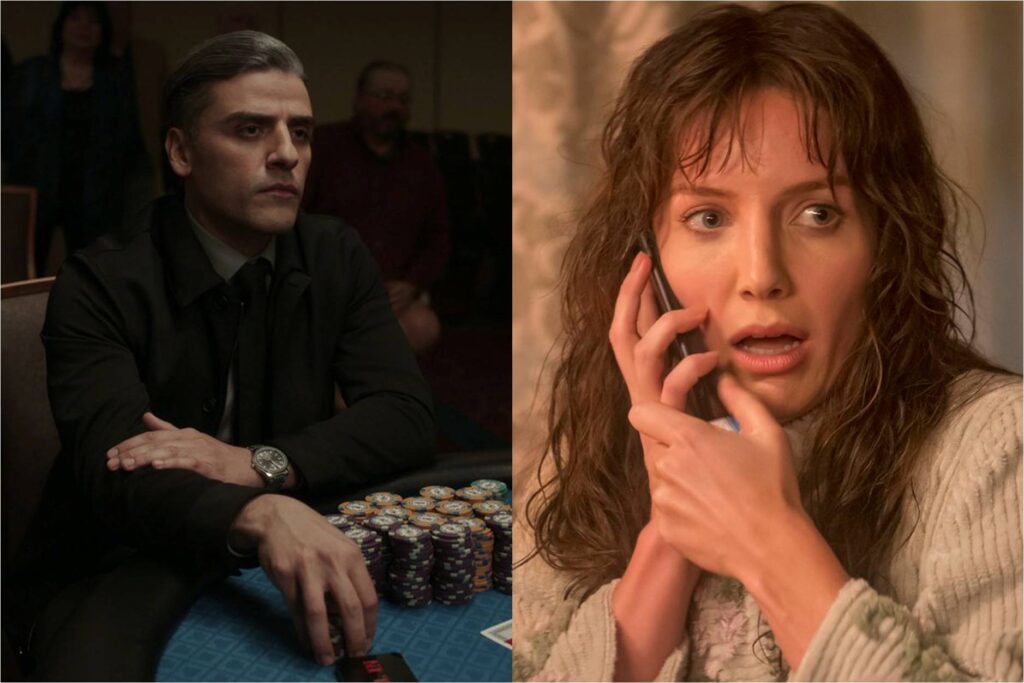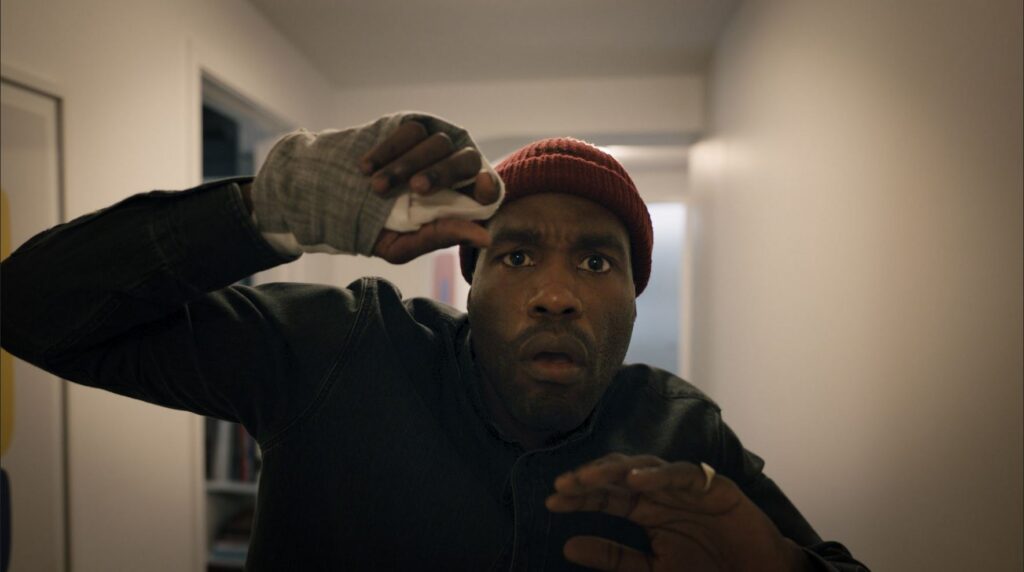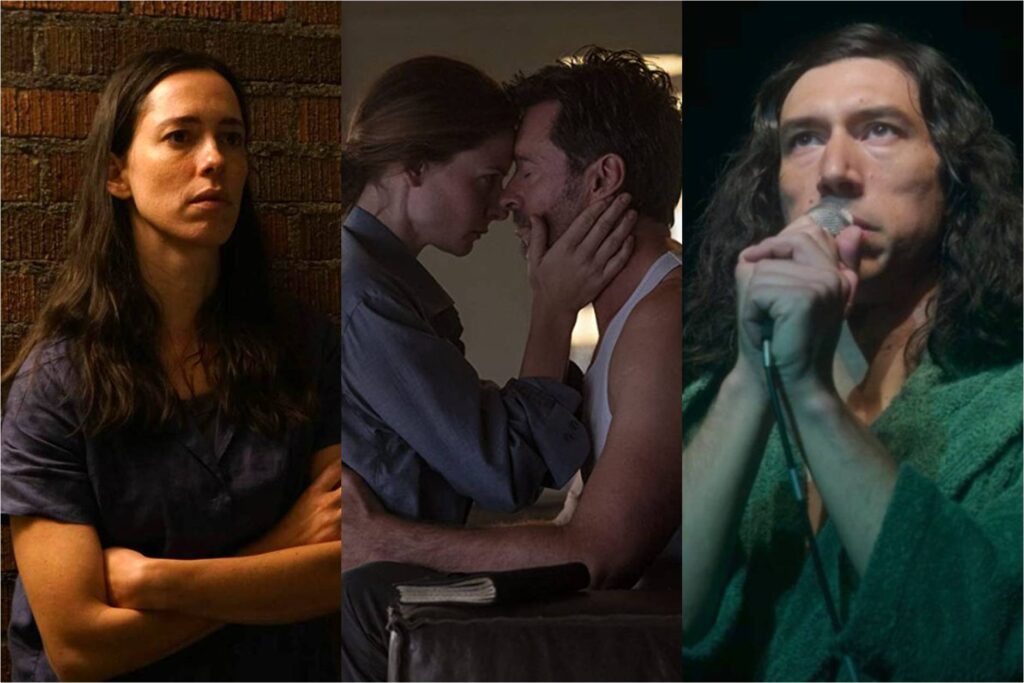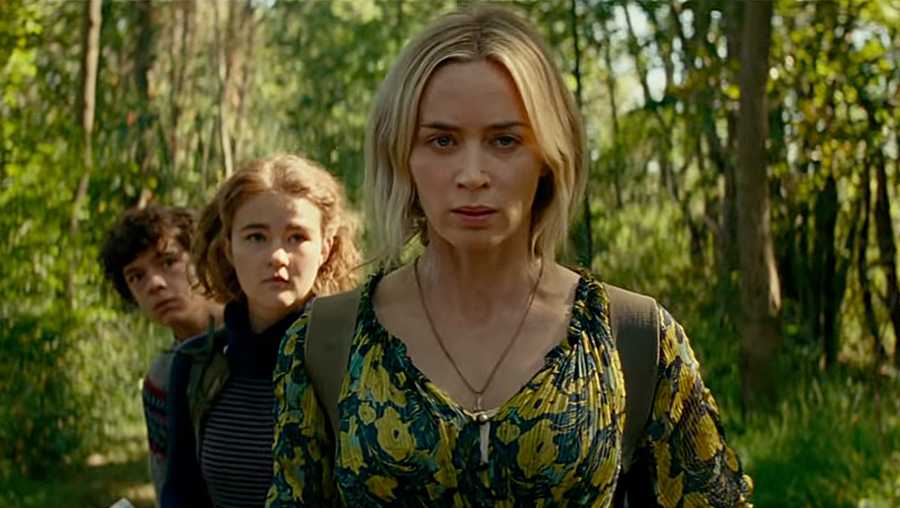Scream: The Ghostface That Launched a Thousand Quips
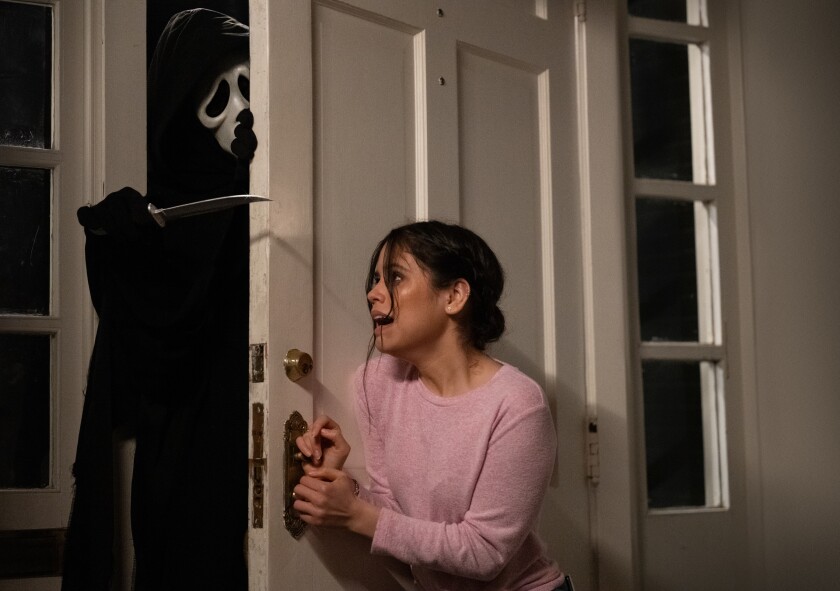
Scream is the fifth movie in the Scream franchise, which launched a quarter-century ago with a movie that was also called Scream. If you find this title repetition annoying, you aren’t alone; the film’s characters agree with you. “It should’ve been called Stab 8, not just Stab,” someone grouses at one point, referring to the series within the series that has apparently suffered from creative drought. This kind of meta commentary can be exhausting, but here it carries an element of sincerity. Despite being a bunch of cheap slasher flicks with no big stars, the Scream pictures have always aspired to a fairly lofty level of ambition, striving to combine playful semiotic analysis with genuine cinematic terror. These movies don’t just want to mock the clichés of classic horror; they also want to be horror classics.
Which this new Scream is not. Directed by Matt Bettinelli-Olpin and Tyler Gillett, the duo behind the similarly sly Ready or Not, it’s more functional than suspenseful, serving up the usual medley of shrieks, spurts, and shocks with formulaic toil. But it’s nevertheless appealing, with solid performances and a witty script (from James Vanderbilt and Guy Busick) whose insights extend beyond the usual canned callbacks and self-referential humor. The movie is predictably stocked with insignificant twists—who’s the real killer? who cares?—but its biggest surprise is that it actually has something to say. Read More

